There’s nothing funny about grief, but there is a lot to laugh about in the grievous business of life. In that tiny crack in the order of things — a loophole, if you will, in the human contract — director Alexander Payne has found sustenance and inspiration. In The Descendants, for instance, his new tragicomedy, here comes George Clooney, running down the street in his flip-flops and Hawaiian shirt on a slap-happy mission of pathos. His wife Elizabeth (Patricia Hastie) has just had a boating accident and lies in a coma. Now he has learned that she had been cheating on him. He is running to a neighbour’s house to see if they knew about this — everyone seems to have been in on it — and who the other man was.
Clooney, playing a successful lawyer named Matt King, doesn’t look much like the confident ironist of his more successful romantic comedies or slick adventures. He looks like a well-preserved older guy running in flip-flops, winded, desperate, lost. He also looks, well, a little funny.
The accident and the affair are just the beginning of The Descendants, a casually unbuttoned story that asks you to laugh and mourn with a strange crew of people in an exotic and indefinable location. Not much happens until everything does, and as it did in Payne’s most successful films — Sideways, About Schmidt, Election — it happens to outsiders, men who haven’t quite grown up and must be taught to live through crisis.
It’s jammed with characters and meanders irresistibly across Hawaii, presented here not as an island paradise, but more a workaday beach community of bad dressers. “Paradise? Paradise can go f--- itself” Matt says in voice-over. Payne, adapting a novel by Kaui Hart Hemmings, has discovered a secret of grief: There’s a giddiness to (grief), a sort of freedom enclosed in its small shell of day-to-day getting through things. It’s like an island, cut off from hope but liberating. It carries on.
With his faithless wife in a coma — Elizabeth lies silently at the centre of the story — Matt must become a parent to two daughters, Alexandra (Shailene Woodley) and Scottie (Amara Miller), whom he hasn’t had much time for. “I’m the backup parent, the understudy,” he says, and he has his work cut out for him. Alexandra, the older girl, is especially angry; she knows about her mother and won’t forgive her. Woodley — star of the ABC Family channel show, The Secret Life of the American Teenager — gives a fiercely authentic performance. (For all his troubles, Matt is blessed with a dynamite supporting cast, including Robert Forster as Elizabeth’s perpetually angry father.)
There’s another story going on in The Descendants as well. Matt controls a family trust that owns 25,000 valuable acres on Kauai, and it’s up to him whether it’s preserved or sold to developers. Matt is descended from Hawaiian royalty, although they have devolved into a group of layabouts and fortune-hunters. Notable among them is Beau Bridges, who was born to wear a Hawaiian shirt, (he and brother Jeff Bridges’ Dude would make an ideal salt and pepper set at some Honolulu gift shop.)
Matt and his girls must help one another through this family crisis, with the unlikely help of Alexandra’s boyfriend Sid (Nick Krause). Sid is a hilarious stoner who’s smarter than he looks, although that’s true of much of The Descendants.
The movie takes its time going to a fairly predictable conclusion, but that’s because it keeps turning into glorious little cul de sacs. For example: Matt will meet his wife’s genial lover (Matthew Lillard, an anti-Clooney) and his wife (Judy Greer), whose awkward position — a woman whose rival is in a coma — allows her a memorable scene of sad compassion.
Clooney has never been better in a role that asks us to ignore his improbably good looks and see, instead, a baffled and unhinged tragedy in a Hawaiian shirt. Movie ads are always telling us that we’ll laugh and we’ll cry. In The Descendants, you really will.
"Vancouver The Sun"
The Descendants review
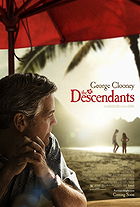 Posted : 13 years, 3 months ago on 15 February 2012 10:59
(A review of The Descendants)
Posted : 13 years, 3 months ago on 15 February 2012 10:59
(A review of The Descendants) 0 comments, Reply to this entry
0 comments, Reply to this entry
Star Wars: Episode I - The Phantom Menace review
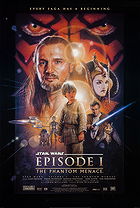 Posted : 13 years, 4 months ago on 12 February 2012 12:56
(A review of Star Wars: Episode I - The Phantom Menace)
Posted : 13 years, 4 months ago on 12 February 2012 12:56
(A review of Star Wars: Episode I - The Phantom Menace)What did the Y2K bug and The Phantom Menace have in common? The anticipation generated more excitement than their actual arrival enjoyed. Despite this, I'm sure the release of 'Menace' will cause many parents to be bugged by children pleading again for the associated licensed merchandise.
Categorized as a prequel, meaning it begins prior to the proceeding three films, this first edition introduces us to characters and a plot that will tangle and weave through two more movies until it becomes a perfect fit to the initial release back in the disco 70's. The fact that George Lucas has kept the look of this film so similar to those earlier productions is a feat in itself.
MMeeting the youthful Obi-Wan Kenobi (Ewan McGregor) and Anakin Skywalker (Jake Lloyd -- whose character, of course, will become the tyrant Darth Vader), is almost as fun as going back in time to discover your spouse in grade school.
SSkywalker and Kenobi, along with master Jedi trainer Qui-Gon Jinn (Liam Neeson) and a completely digitized character named Jar Jar Binks (voiced by Ahmed Best) become the team to root for. They attempt to save Queen Amidala (Natalie Portman) from a bad hair day, and her planet from being overrun by the Trade Federation.
Conflict is the core of any movie with the word war in its title, and The Phantom Menace is chock full of space-aged digital violence -- but no gore. Thousands of those killed are robotic droids or of a non-human descent (that makes it okay?). With the exception of a high-speed pod-race, which is organized for recreational and gambling purposes and results in needless loss of life, the rest of the action depicts individuals fighting for freedom after other attempts at negotiating have failed.
The lack of profanity and sex (other than a brief shot of a woman in just as brief a bikini) impressed me more than the effects, which is bound to make this film a huge hit with many families. The good news is, if the old Star Wars movies met your family's standards, this will too.
by Rod Gustafson
Categorized as a prequel, meaning it begins prior to the proceeding three films, this first edition introduces us to characters and a plot that will tangle and weave through two more movies until it becomes a perfect fit to the initial release back in the disco 70's. The fact that George Lucas has kept the look of this film so similar to those earlier productions is a feat in itself.
MMeeting the youthful Obi-Wan Kenobi (Ewan McGregor) and Anakin Skywalker (Jake Lloyd -- whose character, of course, will become the tyrant Darth Vader), is almost as fun as going back in time to discover your spouse in grade school.
SSkywalker and Kenobi, along with master Jedi trainer Qui-Gon Jinn (Liam Neeson) and a completely digitized character named Jar Jar Binks (voiced by Ahmed Best) become the team to root for. They attempt to save Queen Amidala (Natalie Portman) from a bad hair day, and her planet from being overrun by the Trade Federation.
Conflict is the core of any movie with the word war in its title, and The Phantom Menace is chock full of space-aged digital violence -- but no gore. Thousands of those killed are robotic droids or of a non-human descent (that makes it okay?). With the exception of a high-speed pod-race, which is organized for recreational and gambling purposes and results in needless loss of life, the rest of the action depicts individuals fighting for freedom after other attempts at negotiating have failed.
The lack of profanity and sex (other than a brief shot of a woman in just as brief a bikini) impressed me more than the effects, which is bound to make this film a huge hit with many families. The good news is, if the old Star Wars movies met your family's standards, this will too.
by Rod Gustafson
 0 comments, Reply to this entry
0 comments, Reply to this entry
24 review
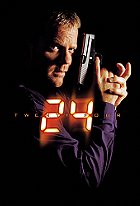 Posted : 13 years, 4 months ago on 12 February 2012 12:52
(A review of 24)
Posted : 13 years, 4 months ago on 12 February 2012 12:52
(A review of 24)took over the series and the character played by Keifer Sutherland from the original creators of 24 seems to have had a different vision of who Jack Bauer really is… apparantly a vengeful psychopath that has just been barely held in check for 7 seasons. This season he’s crossed a line he never actually contemplated crossing before: Cold blooded murder of unarmed people for revenge – and torture so vile that it would make Al Qaeda proud.
In case it’s not clear, I’ve not been happy about this final season (#8) of 24 – frankly, I wish they’d retired it about three years ago while it was still great – and with what they’ve done with the show this season I just don’t see the prospect of a theatrical version of 24 doing that well at the box office.
The culmination of the season sees Jack determined to go all the way up to the top of the chain of terrorist events of the past 24 hours and expose Russian President Suvarov, who was the ultimate power behind the day’s events. Jack has killed everyone up the chain up to that point and is making headway in getting to Suvarov. They do at least show a bit of humanity in Jack when he tells ex-President Logan’s aide that they took away the option of a justice system for him when they tried to bury the events of the day – making him judge and jury. He spares the life of the aide instead of murdering him.
Dalia (now President of the IRK) finds out about the source of the assassination and confronts President Taylor, who finally has to come clean about the cover up. Taylor has been sliding down that slippery slope and fighting it as best she can, but is willing to pay almost any price for the Middle East peace agreement to go through. When Dalia refuses to sign the agreement once she learns the truth, Taylor goes off the deep end and threatens a full scale attack if Dalia doesn’t sign the treaty. VERY grudgingly, Dalia agrees to sign.
Jack of course makes it into the UN building without much trouble, while Chloe, Arlo and Ortiz try to get to Jack in order to retrieve the video evidence, get the information out and stop him from assassinating the Russian President.
Chloe comes upon Jack as he is about to assassinate the Russian President, and manages to get through to him by invoking Renee Walker – saying she wouldn’t want a war started because of her (with a country that has intercontinental nukes, no less). Jack acquiesces, – but knows that the TAC team is coming and gets Chloe to shoot him just as they arrive in order for her to be able to get the digital recording out.
Eventually President Taylor has a change of heart, after watching a recording that Jack made for his daughter about the events of the day and stops the agreement from being signed – along with stopping the planned assassination of Bauer by Logan. In the end Jack’s death is barely averted, but Taylor tells him that they’ll both have to face the consequences of what they did that day – and is going to give him some time to leave the country and go into hiding. In a heartfelt goodbye, Jack tells Chloe that he never thought that she would be the one who watched out for him for so many years – and that is the end.
After the incredible suspense of some previous seasons, this final episode felt lacking. Maybe it’s from having gone through this so many times, but there was never really a sense that the plan wouldn’t succeed or that the news wouldn’t somehow get out. I guess they can only dangle you out over the edge of the precipice so many times until you learn they’re always going to bring you back in to safety.
And here’s a major issue: The final episode of every season has always revolved around some critical danger that Jack has to stop. In this episode the big issue was “will he assassinate the Russian President?”
Seriously?
Was the audience supposed to be on the edge of its seat for fear that Jack would go through with it? The man was responsible for an attempted terrorist attack that would have taken out tens of thousands of people, which was only avoided because JACK stopped it.
Jack had already taken out everyone else up the chain who was involved, so who gives a damn if the guy was killed? That was a poor, poor lynch-pin for the episode. Yeah, yeah – nuclear war, yadda yadda – not much of a motivating threat in the last 45 minutes of a series finale.
The one thing that was in doubt was whether they would actually kill Jack at the end of the episode since this was the end of the series – but no, they left him alive and on the run. There was too much similarity to the same thing that happened a few seasons back when Jack had to go on the run from the U.S. government. Frankly after 8 “days” I was ready to see Jack finally have some peace in his life, as they hinted at 24 episodes ago in the season opener… the chance to finally retire and enjoy life with his daughter and grandchild.
So after so many years of nail-biting episodes and entire seasons, this final episode of 24 felt like it went out more with a whimper than with a roar.
Sadly, not a fitting end to the story of Jack Bauer – no doubt due to the bloody temptation to bring him back once more whether it be in another season, series or feature film.
Bummer.
In case it’s not clear, I’ve not been happy about this final season (#8) of 24 – frankly, I wish they’d retired it about three years ago while it was still great – and with what they’ve done with the show this season I just don’t see the prospect of a theatrical version of 24 doing that well at the box office.
The culmination of the season sees Jack determined to go all the way up to the top of the chain of terrorist events of the past 24 hours and expose Russian President Suvarov, who was the ultimate power behind the day’s events. Jack has killed everyone up the chain up to that point and is making headway in getting to Suvarov. They do at least show a bit of humanity in Jack when he tells ex-President Logan’s aide that they took away the option of a justice system for him when they tried to bury the events of the day – making him judge and jury. He spares the life of the aide instead of murdering him.
Dalia (now President of the IRK) finds out about the source of the assassination and confronts President Taylor, who finally has to come clean about the cover up. Taylor has been sliding down that slippery slope and fighting it as best she can, but is willing to pay almost any price for the Middle East peace agreement to go through. When Dalia refuses to sign the agreement once she learns the truth, Taylor goes off the deep end and threatens a full scale attack if Dalia doesn’t sign the treaty. VERY grudgingly, Dalia agrees to sign.
Jack of course makes it into the UN building without much trouble, while Chloe, Arlo and Ortiz try to get to Jack in order to retrieve the video evidence, get the information out and stop him from assassinating the Russian President.
Chloe comes upon Jack as he is about to assassinate the Russian President, and manages to get through to him by invoking Renee Walker – saying she wouldn’t want a war started because of her (with a country that has intercontinental nukes, no less). Jack acquiesces, – but knows that the TAC team is coming and gets Chloe to shoot him just as they arrive in order for her to be able to get the digital recording out.
Eventually President Taylor has a change of heart, after watching a recording that Jack made for his daughter about the events of the day and stops the agreement from being signed – along with stopping the planned assassination of Bauer by Logan. In the end Jack’s death is barely averted, but Taylor tells him that they’ll both have to face the consequences of what they did that day – and is going to give him some time to leave the country and go into hiding. In a heartfelt goodbye, Jack tells Chloe that he never thought that she would be the one who watched out for him for so many years – and that is the end.
After the incredible suspense of some previous seasons, this final episode felt lacking. Maybe it’s from having gone through this so many times, but there was never really a sense that the plan wouldn’t succeed or that the news wouldn’t somehow get out. I guess they can only dangle you out over the edge of the precipice so many times until you learn they’re always going to bring you back in to safety.
And here’s a major issue: The final episode of every season has always revolved around some critical danger that Jack has to stop. In this episode the big issue was “will he assassinate the Russian President?”
Seriously?
Was the audience supposed to be on the edge of its seat for fear that Jack would go through with it? The man was responsible for an attempted terrorist attack that would have taken out tens of thousands of people, which was only avoided because JACK stopped it.
Jack had already taken out everyone else up the chain who was involved, so who gives a damn if the guy was killed? That was a poor, poor lynch-pin for the episode. Yeah, yeah – nuclear war, yadda yadda – not much of a motivating threat in the last 45 minutes of a series finale.
The one thing that was in doubt was whether they would actually kill Jack at the end of the episode since this was the end of the series – but no, they left him alive and on the run. There was too much similarity to the same thing that happened a few seasons back when Jack had to go on the run from the U.S. government. Frankly after 8 “days” I was ready to see Jack finally have some peace in his life, as they hinted at 24 episodes ago in the season opener… the chance to finally retire and enjoy life with his daughter and grandchild.
So after so many years of nail-biting episodes and entire seasons, this final episode of 24 felt like it went out more with a whimper than with a roar.
Sadly, not a fitting end to the story of Jack Bauer – no doubt due to the bloody temptation to bring him back once more whether it be in another season, series or feature film.
Bummer.
 0 comments, Reply to this entry
0 comments, Reply to this entry
The Dark Knight review
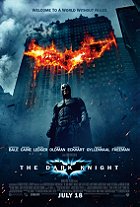 Posted : 13 years, 4 months ago on 12 February 2012 12:44
(A review of The Dark Knight)
Posted : 13 years, 4 months ago on 12 February 2012 12:44
(A review of The Dark Knight)Plot
Batman (Bale) hopes to hang up his cape and hand over crime-fighting duties to District Attorney Harvey Dent (Eckhart). But the arrival of clown-faced master criminal The Joker (Ledger) forces the masked vigilante to question everything he stands for.
Review
The hero is a billionaire industrialist who likes to beat people up. The only good cop in the city employs dishonest ones. The psychotic terrorist torturing civilians and chopping up criminals… Well, he’s just about the most charismatic character you’ll ever meet. Welcome to Gotham, where no good deed goes unpunished. And welcome to The Dark Knight, an anarchic, malevolent fury of a movie that takes a switchblade to the face of summer conformity and carves a work of twisted beauty out of it.
Anticipation and escalation were the key words in the build up to, post-Indy, 2008’s most hyped and combustible blockbuster. Director/co-writer Christopher Nolan has talked of making a bigger, bolder picture, unfettered by the origin-construction constraints of the still-excellent Batman Begins. The marketing has been masterful: a lesson in tease and please from 42 Entertainment (earning what must surely be the only mention of a movie’s PR firm in an Empire review; whatever, they deserve it). Then, just as the Sturm und Drang around The Dark Knight built to a frenzy came the January death of Heath Ledger. Peeks at his performance as the Clown Prince Of Crime had already prompted whispers of Oscar, of the birth of an icon. Cynics suggested his passing would boost the box office; pessimists griped that a comic-book movie could never serve as a suitable epitaph to the Brokeback Mountain star.
And — yes — as was, perhaps, always inevitable, The Dark Knight is Ledger’s movie. It is a towering performance. From his menacing, pencil-packing greeting to Gotham’s Mob fraternity (one of the most economic and effective character introductions ever), to the threat and fire he conjures in exchanges with Maggie Gyllenhaal’s sexy, sophisticated brief and “The Bat-maaan”, to the Sophie’s choice surprises of the third act, he is pure, powerful, immense. A force of fucking nature. Informed by Alan Moore’s The Killing Joke and Jeph Loeb’s The Long Halloween, Ledger’s Joker is anarchy in a three-piece, a ruthless villain who cares for nothing, not even himself. His function, crafted in the hive mind of the Nolans and as Ledger plays him, is to cause chaos, to question everything, to push everyone to extremes, to show Batman there are no rules to this game.
This doesn’t mean Christian Bale is sidelined as either Bruce Wayne or his suited, re-booted vigilante. There’s no repeat of Keaton’s eclipse by Nicholson’s “I’d like eggs with that” Joker turn in Burton’s Batman. Bale is too muscular and committed for that, the Nolans’ script too evenly interested in every character in its universe. So, Batman is more conflicted than ever, still clinging to his parents’ memory but minus the scowly brooding that can make DC’s darkest hero feel like a moody teen. Now his concerns are much more immediate: how to neuter a threat that could destroy a city, how to empower a new DA without blowing his cover, how to work outside the system without bringing it down. He’s Dirty Harry with a conscience: a conscience The Joker plays like a violin.
Pre-release presumptions about The Dark Knight being the comic-book Heat are valid, if not all-encompassing. Visually the comparison is spot on, and regular Nolan cinematographer Wally Pfister deserves props: ironically The Dark Knight brings Batman out of the shadows, through a burnished, Michael Mann Chicago into a daylight noir. But while The Joker and Batman are both costumed “freaks”, they don’t completely share the McCauley/Hanna dynamic. De Niro’s criminal, for one, had principles; The Joker has none. And Mann’s film was as much about being a professional as being a cop or a criminal, meaning the characters that are most thematically similar are Gary Oldman’s hard-working lieutenant and Aaron Eckhart’s idealistic lawyer (yes, they do manage to pull off that oxymoron), who are trying to change their world without recourse to gadgets or PVC underpants.
And so on and on (it runs an epic 152 minutes), Nolan navigates through a moral maze and some pointed politicking, but without ever stinting on stunts or explosions. It is thoughtful but never dull, and the OTT action and expansion — underscored in IMAX sequences which will no doubt look spectacular on the enormo-screen (Empire reviewed from a 35mm print) — are generally to its benefit, even though Nolan still appears more comfortable and engaged with interacting people than trucks and Batbikes. After a blistering opening, there’s a second act lull and a story shift not quite as elegant (or, some might argue, even coherent) as you’d expect from the director of The Prestige. But The Dark Knight is spectacular, visionary blockbuster entertainment: pretty much everything you could hope for and then some. It isn’t perfect but then, like its hero, like his late co-star, and as Nolan’s fitting tribute so ably observes, nobody is.
Verdict
Ledger’s performance is monumental, but The Dark Knight lives up to it. Nolan cements his position as Hollywood’s premier purveyor of blockbuster smarts – and the Batbike is kinda cool, too.
Reviewer: Mark Dinning
Batman (Bale) hopes to hang up his cape and hand over crime-fighting duties to District Attorney Harvey Dent (Eckhart). But the arrival of clown-faced master criminal The Joker (Ledger) forces the masked vigilante to question everything he stands for.
Review
The hero is a billionaire industrialist who likes to beat people up. The only good cop in the city employs dishonest ones. The psychotic terrorist torturing civilians and chopping up criminals… Well, he’s just about the most charismatic character you’ll ever meet. Welcome to Gotham, where no good deed goes unpunished. And welcome to The Dark Knight, an anarchic, malevolent fury of a movie that takes a switchblade to the face of summer conformity and carves a work of twisted beauty out of it.
Anticipation and escalation were the key words in the build up to, post-Indy, 2008’s most hyped and combustible blockbuster. Director/co-writer Christopher Nolan has talked of making a bigger, bolder picture, unfettered by the origin-construction constraints of the still-excellent Batman Begins. The marketing has been masterful: a lesson in tease and please from 42 Entertainment (earning what must surely be the only mention of a movie’s PR firm in an Empire review; whatever, they deserve it). Then, just as the Sturm und Drang around The Dark Knight built to a frenzy came the January death of Heath Ledger. Peeks at his performance as the Clown Prince Of Crime had already prompted whispers of Oscar, of the birth of an icon. Cynics suggested his passing would boost the box office; pessimists griped that a comic-book movie could never serve as a suitable epitaph to the Brokeback Mountain star.
And — yes — as was, perhaps, always inevitable, The Dark Knight is Ledger’s movie. It is a towering performance. From his menacing, pencil-packing greeting to Gotham’s Mob fraternity (one of the most economic and effective character introductions ever), to the threat and fire he conjures in exchanges with Maggie Gyllenhaal’s sexy, sophisticated brief and “The Bat-maaan”, to the Sophie’s choice surprises of the third act, he is pure, powerful, immense. A force of fucking nature. Informed by Alan Moore’s The Killing Joke and Jeph Loeb’s The Long Halloween, Ledger’s Joker is anarchy in a three-piece, a ruthless villain who cares for nothing, not even himself. His function, crafted in the hive mind of the Nolans and as Ledger plays him, is to cause chaos, to question everything, to push everyone to extremes, to show Batman there are no rules to this game.
This doesn’t mean Christian Bale is sidelined as either Bruce Wayne or his suited, re-booted vigilante. There’s no repeat of Keaton’s eclipse by Nicholson’s “I’d like eggs with that” Joker turn in Burton’s Batman. Bale is too muscular and committed for that, the Nolans’ script too evenly interested in every character in its universe. So, Batman is more conflicted than ever, still clinging to his parents’ memory but minus the scowly brooding that can make DC’s darkest hero feel like a moody teen. Now his concerns are much more immediate: how to neuter a threat that could destroy a city, how to empower a new DA without blowing his cover, how to work outside the system without bringing it down. He’s Dirty Harry with a conscience: a conscience The Joker plays like a violin.
Pre-release presumptions about The Dark Knight being the comic-book Heat are valid, if not all-encompassing. Visually the comparison is spot on, and regular Nolan cinematographer Wally Pfister deserves props: ironically The Dark Knight brings Batman out of the shadows, through a burnished, Michael Mann Chicago into a daylight noir. But while The Joker and Batman are both costumed “freaks”, they don’t completely share the McCauley/Hanna dynamic. De Niro’s criminal, for one, had principles; The Joker has none. And Mann’s film was as much about being a professional as being a cop or a criminal, meaning the characters that are most thematically similar are Gary Oldman’s hard-working lieutenant and Aaron Eckhart’s idealistic lawyer (yes, they do manage to pull off that oxymoron), who are trying to change their world without recourse to gadgets or PVC underpants.
And so on and on (it runs an epic 152 minutes), Nolan navigates through a moral maze and some pointed politicking, but without ever stinting on stunts or explosions. It is thoughtful but never dull, and the OTT action and expansion — underscored in IMAX sequences which will no doubt look spectacular on the enormo-screen (Empire reviewed from a 35mm print) — are generally to its benefit, even though Nolan still appears more comfortable and engaged with interacting people than trucks and Batbikes. After a blistering opening, there’s a second act lull and a story shift not quite as elegant (or, some might argue, even coherent) as you’d expect from the director of The Prestige. But The Dark Knight is spectacular, visionary blockbuster entertainment: pretty much everything you could hope for and then some. It isn’t perfect but then, like its hero, like his late co-star, and as Nolan’s fitting tribute so ably observes, nobody is.
Verdict
Ledger’s performance is monumental, but The Dark Knight lives up to it. Nolan cements his position as Hollywood’s premier purveyor of blockbuster smarts – and the Batbike is kinda cool, too.
Reviewer: Mark Dinning
 0 comments, Reply to this entry
0 comments, Reply to this entry
The Help review
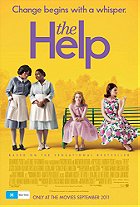 Posted : 13 years, 4 months ago on 12 February 2012 12:38
(A review of The Help)
Posted : 13 years, 4 months ago on 12 February 2012 12:38
(A review of The Help)The Help belongs among the Oscar-considered films that normally arrive in the fall. The fact that the film is in theaters now during the heat of summer? Consider it a gift from Walt Disney Studios.
The Help is based on the beloved novel by Kathryn Stockett. And while Hollywood’s history of turning the page-to-screen experience into something blissful is spotty at best, director Tate Taylor’s film is sure to meet The Help’s passionate literary legion's expectations - and exceed them.
Emma Stone is Eugenia “Skeeter” Phelan. The child of the late 1950s has become an adult in the 1960s. Growing up in Jackson, Mississippi, she has seen her share of racial injustice. The story at the heart of The Help concerns Skeeter’s capturing the life story of the maids who literally raise the children of Jackson and the picture painted is painful, powerful and penetrating in its depiction of the time’s racial divide.
The main characters are two maids played by Octavia Spencer (as Minny( and Viola Davis (as Aibileen). Both actresses rivet in their portrayals in different ways. The two are clearly close friends, bonded by neighborhood and necessity. But their friendship runs deep and only deepens as the two recount their lives for Skeeter. The real heroes of The Help are Minny and Aibileen. It is their story, along with the almost line-less cast of maids who may or may not come together to ensure Stone’s character has fully captured the essence of what it is like to be a repressed soul living in the civil rights hot spot of Jackson, Mississippi.
Emma Stone is a revelation as Skeeter, continuing her impressive full-on attack of Hollywood that began with her turn in Zombieland and has continued through Superbad, Easy A and Crazy, Stupid, Love.
The rest of The Help cast seems to know that they have a duty to deliver because of the quality of the material, but also its potential for achieving societal zeitgeist. Oscar winner Sissy Spacek sizzles as the mother of a downright devilish Bryce Dallas Howard. Howard triumphs in tackling a role that is unlike anything she has ever done before. Jessica Chastain is also one to watch, as Celia Foote. Her characterization captures the outsider omnipresence of the times that can send even the strongest into despair. She might as well be The Help in terms of how the Jackson social elite treat her.
The Help’s story does follow a stereotypical storytelling methodology of having the white person serve as the hero who inspires the African Americans to stand up for their rights. One can’t fault the film as the book is written as such, but in a bigger picture view of things, The Help movie has the benefit of educating a wide audience that equal rights has not always applied to all, as the Constitution states.
When Stone’s Skeeter visits Aibileen and begins the process of writing the novel they hope will alter their own community's way of treating one another, the film gets its legs.
The Help is easily the summer’s most astounding movie. It will unequivocally be included in Movie Fanatic's Top 10 of 2011. Some have questioned its landing in the summer blockbuster season and how it may get lost amongst the hits of the warmer months. We are of the belief that, no matter the situation, talent rises.
The Help will find its audience, and each soul that takes in the fantastic film’s foray into America’s racial divide of the 1960s can count on leaving the cinema changed in the most beautiful of ways.
by Movie Fanatic
The Help is based on the beloved novel by Kathryn Stockett. And while Hollywood’s history of turning the page-to-screen experience into something blissful is spotty at best, director Tate Taylor’s film is sure to meet The Help’s passionate literary legion's expectations - and exceed them.
Emma Stone is Eugenia “Skeeter” Phelan. The child of the late 1950s has become an adult in the 1960s. Growing up in Jackson, Mississippi, she has seen her share of racial injustice. The story at the heart of The Help concerns Skeeter’s capturing the life story of the maids who literally raise the children of Jackson and the picture painted is painful, powerful and penetrating in its depiction of the time’s racial divide.
The main characters are two maids played by Octavia Spencer (as Minny( and Viola Davis (as Aibileen). Both actresses rivet in their portrayals in different ways. The two are clearly close friends, bonded by neighborhood and necessity. But their friendship runs deep and only deepens as the two recount their lives for Skeeter. The real heroes of The Help are Minny and Aibileen. It is their story, along with the almost line-less cast of maids who may or may not come together to ensure Stone’s character has fully captured the essence of what it is like to be a repressed soul living in the civil rights hot spot of Jackson, Mississippi.
Emma Stone is a revelation as Skeeter, continuing her impressive full-on attack of Hollywood that began with her turn in Zombieland and has continued through Superbad, Easy A and Crazy, Stupid, Love.
The rest of The Help cast seems to know that they have a duty to deliver because of the quality of the material, but also its potential for achieving societal zeitgeist. Oscar winner Sissy Spacek sizzles as the mother of a downright devilish Bryce Dallas Howard. Howard triumphs in tackling a role that is unlike anything she has ever done before. Jessica Chastain is also one to watch, as Celia Foote. Her characterization captures the outsider omnipresence of the times that can send even the strongest into despair. She might as well be The Help in terms of how the Jackson social elite treat her.
The Help’s story does follow a stereotypical storytelling methodology of having the white person serve as the hero who inspires the African Americans to stand up for their rights. One can’t fault the film as the book is written as such, but in a bigger picture view of things, The Help movie has the benefit of educating a wide audience that equal rights has not always applied to all, as the Constitution states.
When Stone’s Skeeter visits Aibileen and begins the process of writing the novel they hope will alter their own community's way of treating one another, the film gets its legs.
The Help is easily the summer’s most astounding movie. It will unequivocally be included in Movie Fanatic's Top 10 of 2011. Some have questioned its landing in the summer blockbuster season and how it may get lost amongst the hits of the warmer months. We are of the belief that, no matter the situation, talent rises.
The Help will find its audience, and each soul that takes in the fantastic film’s foray into America’s racial divide of the 1960s can count on leaving the cinema changed in the most beautiful of ways.
by Movie Fanatic
 0 comments, Reply to this entry
0 comments, Reply to this entry
Troy review
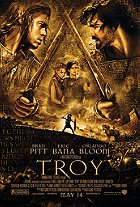 Posted : 13 years, 4 months ago on 12 February 2012 12:30
(A review of Troy)
Posted : 13 years, 4 months ago on 12 February 2012 12:30
(A review of Troy)"In Warner Bros.' Troy movie, certain decisions were made that had dramatic and, depending on how you look at the Troy movie, devastating consequences. Chief among these was the elimination of the involvement of the gods and goddesses in the lives of men at Troy. Without the hand of Apollo to guide the arm of Paris, Achilles should have survived and might well have lived long enough to be inside the Trojan Horse. Without the hand of Aphrodite, Paris should have died, killed at the hand of Menelaus -- or, in the alternate reality of the Troy movie, fled for safety to his brother. In this alternate Hollywood-reality, it makes some sense that Hector would kill Menelaus to save his brother's life, although the code of honor that the warriors followed -- in ancient times as in the Troy movie -- makes this action questionable. Perhaps it was only because of the intervention of the gods that the Trojan War lasted 10 years in the original, rather than the 2 weeks of Wolfgang Petersen's godless rendition. You'll have to get over the time problem, the presence of Achilles in the Trojan Horse, and the killing by Hector of Menelaus and Ajax, in order to enjoy the Troy movie.
Hector, played by Eric Bana, is torn between his piety, his family, and his country. When he first learns that he is leading a ship back from Menelaus to Troy carrying his son's kidnapped bride Helen, he considers returning her, but then caves in to the wishes of his brother. When Paris grabs his leg during the single combat between Menelaus and Paris, Hector defies the code of the hero and kills Menelaus to protect his brother. Hector tries to console his wife, but he does his duty to his country even when he knows he will be killed because Achilles is a better fighter.
Brad Pitt as Achilles seems to be the most controversial of the leading actors of the Troy movie because people disagree with his portrayal. To me, his independence, dance-like fighting techniques, impulsiveness, defiance of Agamemnon, and love of Briseis all seem in line with the Achilles Homer wrote. Achilles is moved by love of glory and knows that he will die young if he pursues it, but his reputation is all that counts because all he is is a warrior and the best one, at that. Brad Pitt captured that essence and was a delight to watch.
The scene where Achilles washes his face, but none of the dirt and blood comes off as well as the closeups of his battle-time dripping helmet, and the face of Hector's corpse crusted with sand and grit, were among the many realistic touches. The fighting scenes used large numbers of real people, instead of relying only on animation techniques -- although Brad Pitt's leaping almost looked like something from Matrix. The presentation of the walls of Troy and the ships dotting the sea as far as you could see were inspired."
N.S. Gill
Hector, played by Eric Bana, is torn between his piety, his family, and his country. When he first learns that he is leading a ship back from Menelaus to Troy carrying his son's kidnapped bride Helen, he considers returning her, but then caves in to the wishes of his brother. When Paris grabs his leg during the single combat between Menelaus and Paris, Hector defies the code of the hero and kills Menelaus to protect his brother. Hector tries to console his wife, but he does his duty to his country even when he knows he will be killed because Achilles is a better fighter.
Brad Pitt as Achilles seems to be the most controversial of the leading actors of the Troy movie because people disagree with his portrayal. To me, his independence, dance-like fighting techniques, impulsiveness, defiance of Agamemnon, and love of Briseis all seem in line with the Achilles Homer wrote. Achilles is moved by love of glory and knows that he will die young if he pursues it, but his reputation is all that counts because all he is is a warrior and the best one, at that. Brad Pitt captured that essence and was a delight to watch.
The scene where Achilles washes his face, but none of the dirt and blood comes off as well as the closeups of his battle-time dripping helmet, and the face of Hector's corpse crusted with sand and grit, were among the many realistic touches. The fighting scenes used large numbers of real people, instead of relying only on animation techniques -- although Brad Pitt's leaping almost looked like something from Matrix. The presentation of the walls of Troy and the ships dotting the sea as far as you could see were inspired."
N.S. Gill
 0 comments, Reply to this entry
0 comments, Reply to this entry
The Departed review
 Posted : 13 years, 4 months ago on 10 February 2012 03:43
(A review of The Departed)
Posted : 13 years, 4 months ago on 10 February 2012 03:43
(A review of The Departed)Simply the best of Martin Scorsese's movies and my personal favorite! There's no flaw in this one, it gets more and more exciting and the finale it's totally unpredictable!
Well done Scorsese!
Well done Scorsese!
 0 comments, Reply to this entry
0 comments, Reply to this entry
The Girl with the Dragon Tattoo review
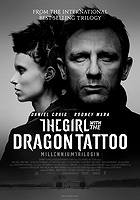 Posted : 13 years, 4 months ago on 30 January 2012 02:56
(A review of The Girl with the Dragon Tattoo)
Posted : 13 years, 4 months ago on 30 January 2012 02:56
(A review of The Girl with the Dragon Tattoo)Fantastic adaptation!
Once again, David Fincher can't disappoint! I changed completely my opinion about Daniel Craig; looks like Mr. Bond is not just a pretty face on the screen, but a really good actor!
Rooney Mara deserve all the congratulation she can have; the little Erica Albright who pass completely unnoticed in The Social Network reveals herself as a future actress that we can count with!
Well done!
Once again, David Fincher can't disappoint! I changed completely my opinion about Daniel Craig; looks like Mr. Bond is not just a pretty face on the screen, but a really good actor!
Rooney Mara deserve all the congratulation she can have; the little Erica Albright who pass completely unnoticed in The Social Network reveals herself as a future actress that we can count with!
Well done!
 0 comments, Reply to this entry
0 comments, Reply to this entry
Moneyball review
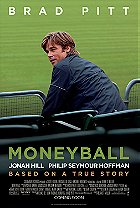 Posted : 13 years, 4 months ago on 24 January 2012 03:21
(A review of Moneyball)
Posted : 13 years, 4 months ago on 24 January 2012 03:21
(A review of Moneyball)Fantastic, epic, dramatic and deep! For me, the greatest film of 2011. Pitt at his finest, better than Clooney at the Descendants!
When you see it "How can you not be romantic about baseball"?
When you see it "How can you not be romantic about baseball"?
 0 comments, Reply to this entry
0 comments, Reply to this entry
The Departed review
 Posted : 13 years, 5 months ago on 8 January 2012 05:03
(A review of The Departed)
Posted : 13 years, 5 months ago on 8 January 2012 05:03
(A review of The Departed)Probably Scorsese's best movie of all time.
Great cast, my favorite director, my favorite gender of movie, two of my favorite actors...genius!
Great cast, my favorite director, my favorite gender of movie, two of my favorite actors...genius!
 0 comments, Reply to this entry
0 comments, Reply to this entry
 Login
Login
 Home
Home 10 Lists
10 Lists 51 Reviews
51 Reviews Collections
Collections